Strolling across ‘Dhaka Makers 2’
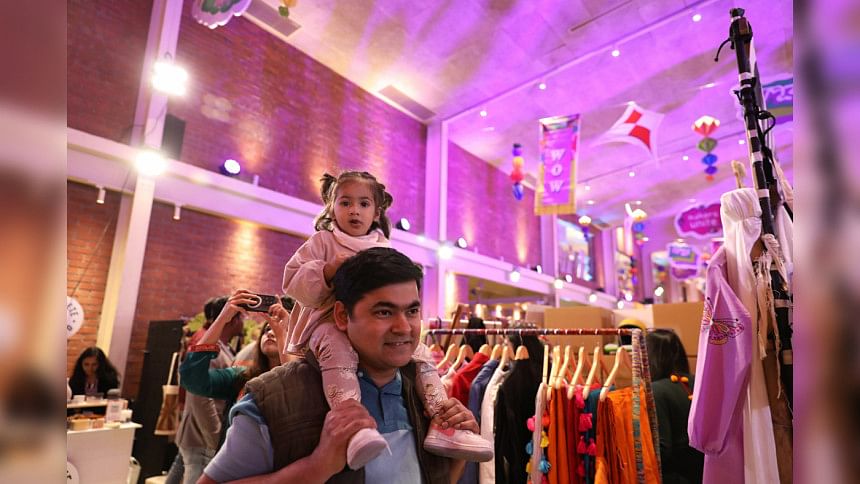
"Dhaka Makers", an independent arts and crafts festival, is a vibrant platform for local artistes to showcase their creativity and connect with like-minded individuals. During my recent visit to the second edition of the event, I was impressed by the diverse range of stalls that highlighted a variety of Bangladeshi artworks. From jewellery and tote bags to stationeries, home decor and clothing, the festival provides an enticing shopping experience for visitors of all ages.
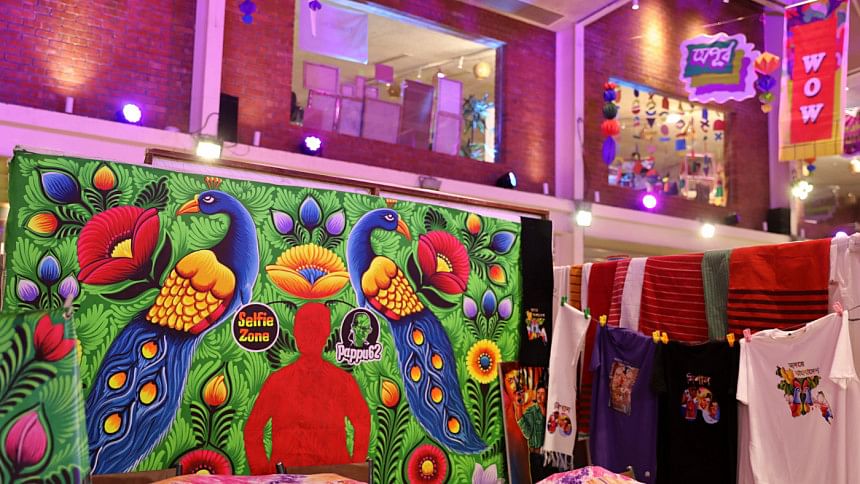
The festival's marketplace, Makers Market, is a treasure trove of Bangladeshi creativity, featuring over 100 vendors. While walking across the stalls, I noticed several young entrepreneurs contributing to the fair's mission of nurturing local talent and empowering artisans and small businesses.
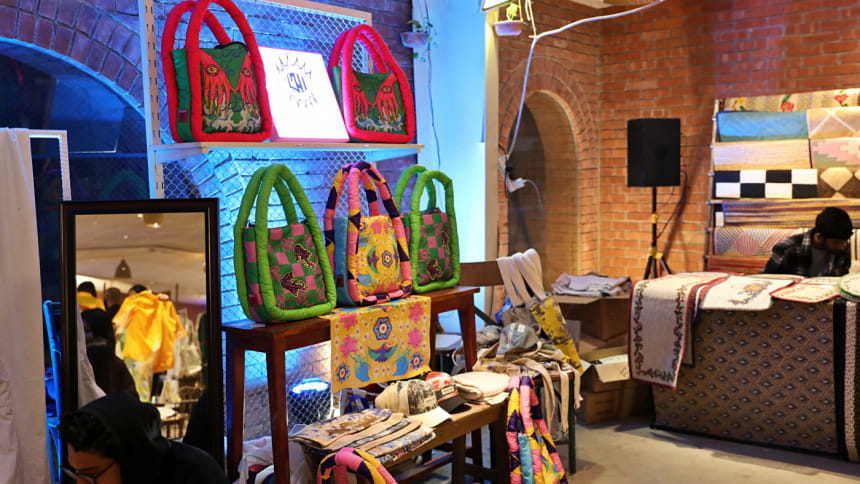
As I explored the stalls, I discovered handcrafted stationery, decor pieces, illustrations and quirky clothing—truly unique souvenirs that supported the artistic community. Each booth told a unique story through handcrafted items as every item seemed to carry a piece of the creator's soul. I could connect with the artistes behind the creations, understanding their stories, and appreciating the craftsmanship that went behind each piece.
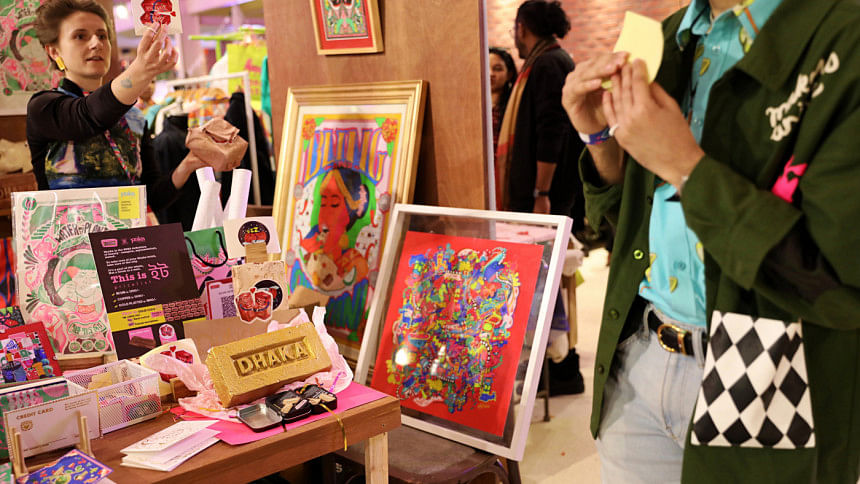
Beyond shopping and entertainment, "Dhaka Makers 2" aimed to engage attendees in hands-on learning and creative exploration. Interactive workshops led by skilled artists covered a wide range of artistic interests, from bamboo weaving to guerrilla filmmaking, Nakshi Kantha embroidery to eco-friendly leather crafting.
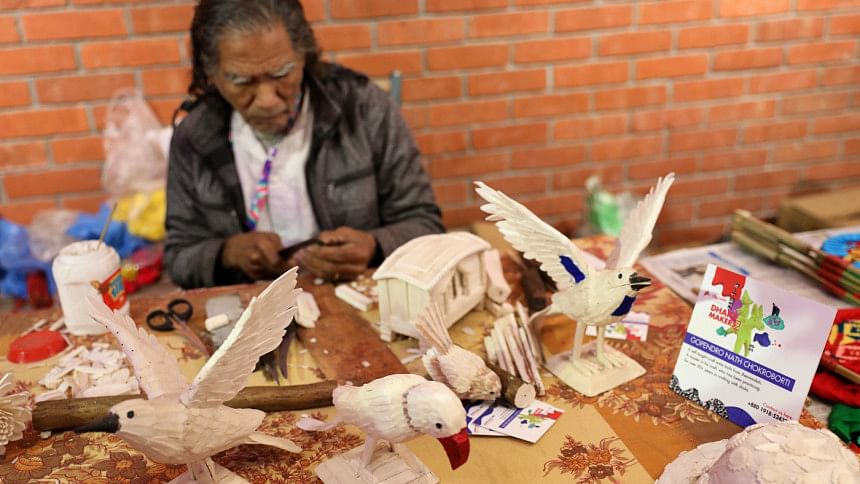
Regardless of skill level, visitors had the chance to ignite their creative spark and learn new techniques, making the festival an inclusive and enriching experience. There were also stalls for clay pottery and painting where the younger visitors happily engaged in artistic endeavours.
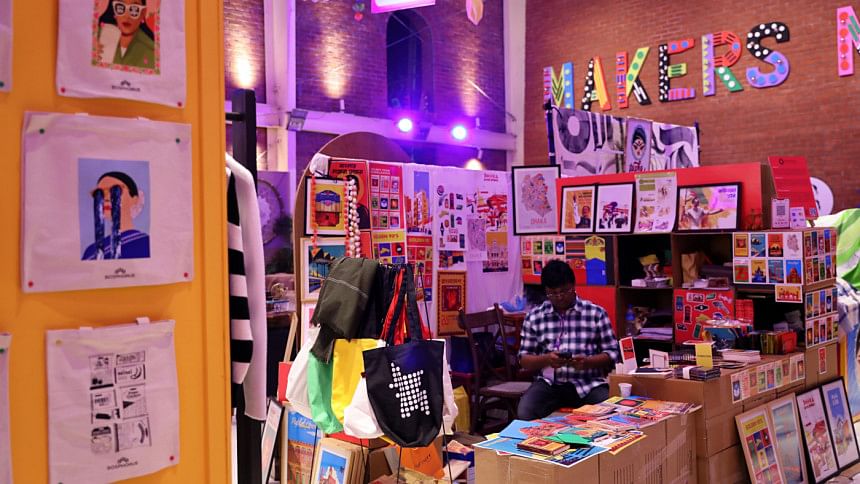
For me, a personal highlight of the festival was Jadughar, an art gallery that showcased the colourful art scene of Dhaka. Featuring over 85 artists, the curated exhibition spanned various artistic expressions, including paintings, ink drawings, installations, and photography. This gallery provided a platform for discovery and inspiration, offering visitors a glimpse into the thriving artistic landscape of Dhaka. The artists enthusiastically spoke to the audience, explaining the intricacies of their works. The artworks were also accompanied by QR codes that could be scanned to learn more about the artiste.
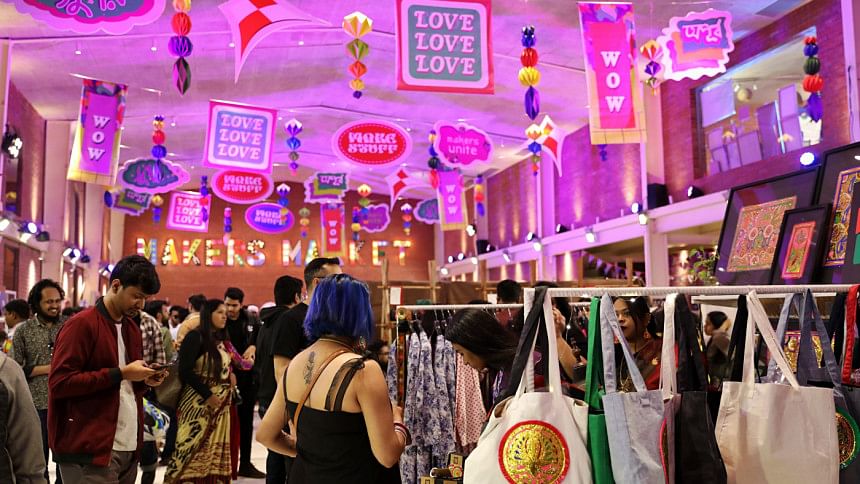
The food pavilion at "Dhaka Makers 2", curated by renowned chef Sameera Wadood, was a haven for foodies. The stalls offered a fusion of flavours, reflecting the festival's spirit of creativity. Live music performances by artists like Tashfee, Labik Kamal Gourob, Imran Ahmed Trio, and Joler Gaan added a lively atmosphere to the event, keeping the audience's spirits high throughout the event. The event provided a cosy space for art enthusiasts to catch up and engage with the lively cultural scene.
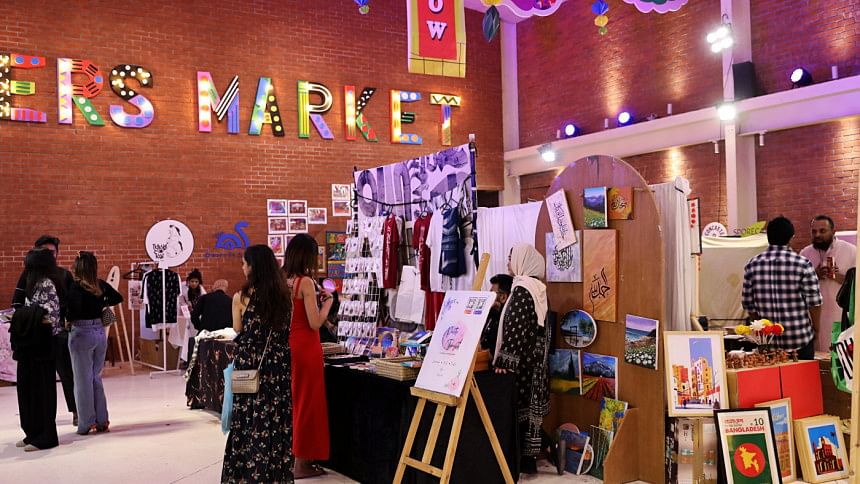
While the event provided a platform for creative entrepreneurs to showcase their work, the festival's overarching emphasis on shopping and commerce shifted the balance away from the immersive and contemplative atmosphere typically associated with arts festivals.
"Dhaka Makers" 2 is open to all with a ticket fee of Tk 200 every day till February 4, from 11am to 9pm.
The ticket price posed an obstacle for many, particularly students and those on a limited budget. While the event aimed to bring together a diverse audience, this barrier restricted access for a significant part of Dhaka's demographic. For a public event, the organisers could have taken practical measures that ensure everyone in the community can participate. Perhaps exploring tiered pricing structures, discounts for students, or even incorporating free-access zones could make "Dhaka Makers 2" genuinely inclusive. Moreover, Aloki's location is not easily reachable through public transport, and this presented another challenge-- adding another filter to an apparently "open for all" event.
While the festival succeeded in promoting local talent and fostering a creative spirit, it felt more like a shopping experience than an arts festival. The sheer quantity of commercial offerings overshadowed the traditional focus on showcasing art just for the sake of appreciation.
To sum things up, "Dhaka Makers 2" did provide a platform for young entrepreneurs but the festival's overarching emphasis on shopping, commerce, and entrepreneurial showcases shifted the balance away from the immersive and contemplative atmosphere typically associated with traditional arts festivals.

 For all latest news, follow The Daily Star's Google News channel.
For all latest news, follow The Daily Star's Google News channel. 



Comments